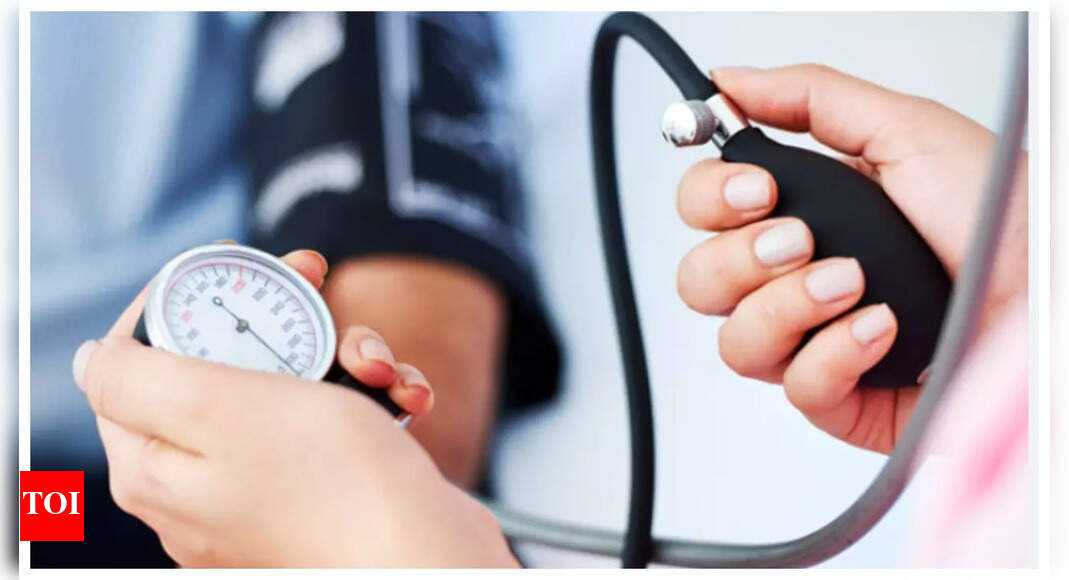[ad_1]
Blood pressure (BP) functions as a vital heart health indicator. High blood pressure levels create an elevated risk of developing heart disease, strokes, and multiple other dangerous medical conditions. Home blood pressure monitoring serves as a common practice for health management, yet the timing and method of measurement directly influences the accuracy of obtained readings.The correct timing and method of blood pressure measurement will produce reliable and consistent readings, which help you make better health choices. Let’s dig deeper…
The time of the day affects your readingBlood pressure levels in the body experience natural fluctuations, during different periods of the day. The body experiences natural fluctuations in blood pressure because of its internal cycles, physical activities and environmental elements. The body experiences its lowest blood pressure during rest periods and sleep, but shows increased pressure during daytime hours, with the highest point occurring in late afternoon.
Poll
When do you think is the best time to measure your blood pressure?
Random blood pressure measurements produce unreliable results, because they produce readings that differ from your actual average blood pressure levels. The results from random measurements, might lead to incorrect health concerns and incorrect medical assessments.

Studies indicate that blood pressure measurements should occur during morning and evening hours only, under controlled conditions. Your morning blood pressure reading shows your natural blood pressure level before starting your day, while your evening reading shows how your blood pressure changes during the evening hours.The best time to check BPMorning before breakfast and medicationsThe morning provides the most suitable time for blood pressure measurement, because your body rests throughout the night while your blood pressure reaches its lowest point. The following steps will help you obtain the most precise morning blood pressure reading:Start your after getting out of bed. Take a 30-minute break after rising from bed before checking your blood pressure.Empty your bladder before the test.You should remain still for five minutes before starting the measurement.You should take your blood pressure reading before taking your prescribed blood pressure medication, because the medication will alter the test results.AIIMS gastroenterologist says “healing starts in your kitchen”: 8 herbs he recommends for gut healthEvening before bedA second blood pressure reading taken in the evening before bedtime, enables you to compare your readings from morning and evening. Your body shows its ability to handle blood pressure after daily activities, and stress through evening measurements.Measure your blood pressure at times when you have not exercised, eaten and are not under stress. Take a five-minute rest before starting the measurement process.The correct methodPreparation mattersThe following basic procedures will help you obtain accurate blood pressure readings:You need to wait at least thirty minutes after eating, drinking, smoking (if you do), and exercise before taking your measurement.Make sure your bladder is empty.Take a five-minute period of quiet rest before starting the measurement process.Choose a chair with back support for sitting down.Your feet should remain flat against the floor, while keeping your legs uncrossed.Place your arm on a flat surface which should be at heart level.Choose a cuff that matches your arm size, because it needs to encircle at least 80% of your upper arm diameter.Measuring techniquePosition the cuff on your upper arm bare skin 2 cm above the elbow crease.Maintain complete stillness and silence during measurement because any movement or speech will affect the results.Take two or three readings which should be spaced one minute apart from each other. Discard the first reading if it differs significantly from the others, then calculate the average of the remaining two readings.Record your readings along with the measurement times and any details about stress levels, and medication use.

When to go to a doctorPeople should visit their doctor for medical evaluation when their home blood pressure readings consistently stay above 130/80 mm Hg, or when their morning and evening readings show significant variations. Medical professionals might order 24-hour ambulatory blood pressure monitoring, to track your blood pressure at different times throughout the day and night for better assessment.Disclaimer: This article is informational only and not a substitute for medical advice
[ad_2]
Source link




